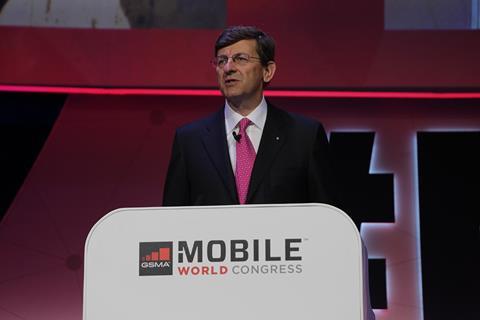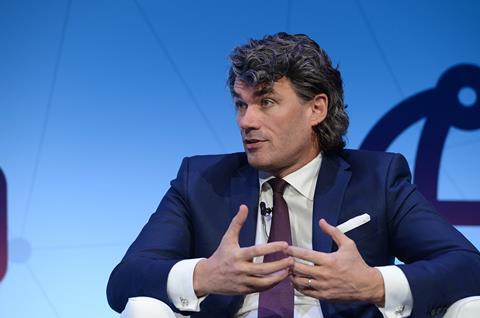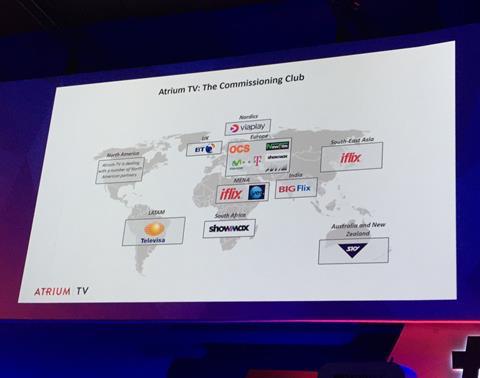The power of Facebook, Amazon, Apple, Netflix and Google was a recurring subject on the opening day of the conference at Mobile World Congress.
How to compete or collaborate with the digital titans known collectively as ‘FAANG’ is an issue that appears to be top of the agenda in many boardrooms.

During his keynote address, Vodafone Chief Executive Vittorio Colao said that it would be difficult to achieve the aim of ‘Creating a better future’ (the strapline of this year’s Mobile World Congress) unless Facebook, Amazon, Apple, Netflix and Google’s “digital dominance” is addressed.
To underline his point, Colao compared the size of FAANG the world’s major telcos.
“If you look at the market capitalisation of those five companies as of Saturday when I checked last, it was three trillion dollars. The market capitalisation of the ten biggest telcos in the world, including Vodafone, is one trillion.”
Later in the day, BT Group Chief Executive Gavin Patterson explained that his organisation wouldn’t attempt to directly compete with Netflix and Amazon’s content offering.
“Netflix and Amazon have become real players in drama and movies, and as BT is a provider that is focused on the UK we can’t compete for the biggest new drama in the same way as Netflix, but we are very happy to aggregate,” he said.
One of the ways in which BT has differentiated its offering is through sport, specifically football; BT Sport recently secured rights to show the Premier League, paying £885m for 32 matches, and Patterson said he was very happy with the broadcaster’s progress in sport, with an “exciting future as we add more right to the portfolio”.
BT Sport was the first UK broadcaster to launch a UHD service, and Patterson also said that picture quality and sound were areas where BT would continue to “add value”.

“Netflix is proving to be a phenomenal proposition for customers – no one running a network can be in denial about that, they just need to see the volume of usage that comes from people using Netflix and Amazon.
“Denying that customers want it would be ridiculous. We are lucky in the sense we can embrace it, because it is a reason why people want to use our service. We are not trying to defend a pay TV bundle in the same way, so we can integrate it into our network and EPG and enhance it for the customer, and in that respect partner with them. That is the model we see going forward. We are, if you like, a super aggregator.”
For platforms and telcos that want to add high-quality scripted productions to their content offering, a “commissioning club’ led by Producer Jeremy Fox may provide the answer.
Atrium TV, which is based in London, was launched last April by former Sony Chairman Howard Stringer; MTG Executive Vice President and Head of Programming and Content Development Jakob Mejlhede and Fox, who is CEO of Atrium and MTG-owned distributor DRG.

Atrium wants to create premium drama for regional OTT platforms and telcos by securing writers and key creative talent and then pitching projects to its members who will decide whether they want to invest.
Telecom operators Orange and Deutsche Telekom as well as OTT services Viaplay in the Nordics and Malaysia-headquartered iFlix are among Atrium’s members. It first projects include dramas about the first moon landing and Quasimodo.
“It’s very hard for some of these giant telcos and mobile operators to get into the content business because the pricing has gone through the roof, courtesy of Netflix. So our idea was to gather a group of them and share the cost.”
Fox said series produced by Atrium would help to “round off” a telco or OTT platform’s content offering.
“It’s not the total solution, but it will enable them to say that once or twice a year we have this programme, and you can only watch it with us. I think that’s compelling.”
























1 Readers' comment